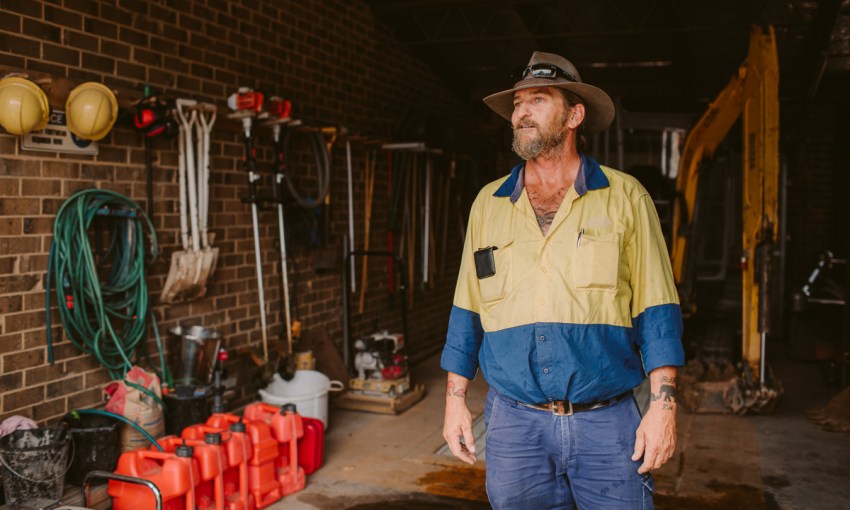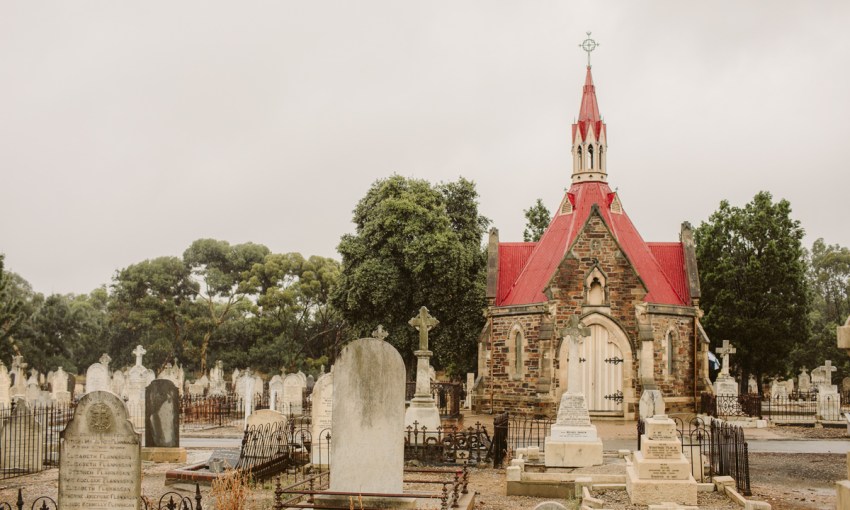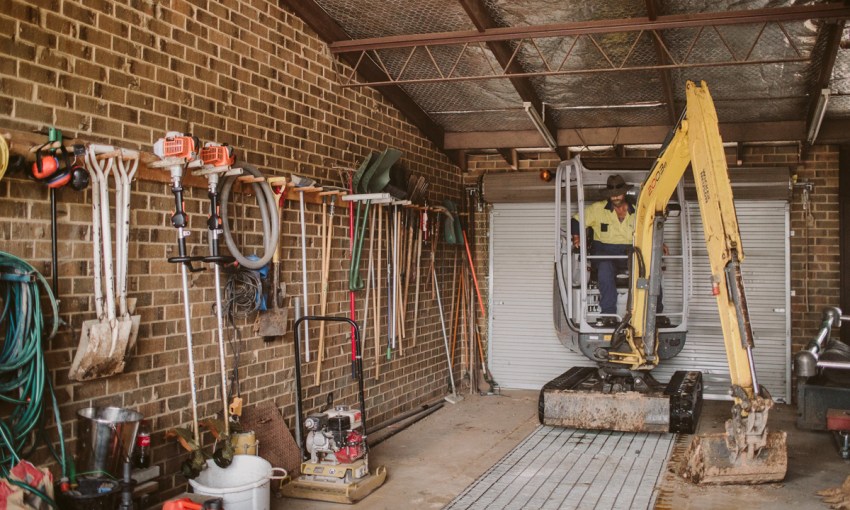For modern grave diggers, making holes in the ground in which to inter the dead is only a fraction of a job that takes in everything from protecting heritage grasses to alleviating the grief of the recently bereaved.
How to be a gravedigger
Gravedigger is not only a job that comes with an unusual set of cultural assumptions, it’s also a job that requires an extreme mix of skills.
Far from being the preserve of horror movie-inspired social outcasts who spend thunderstorm-filled nights carving out final resting places with an intense relish, it is a job suited to people who are at once tough and thoughtful.
It is a job that seems almost specially built for Alan Francis.
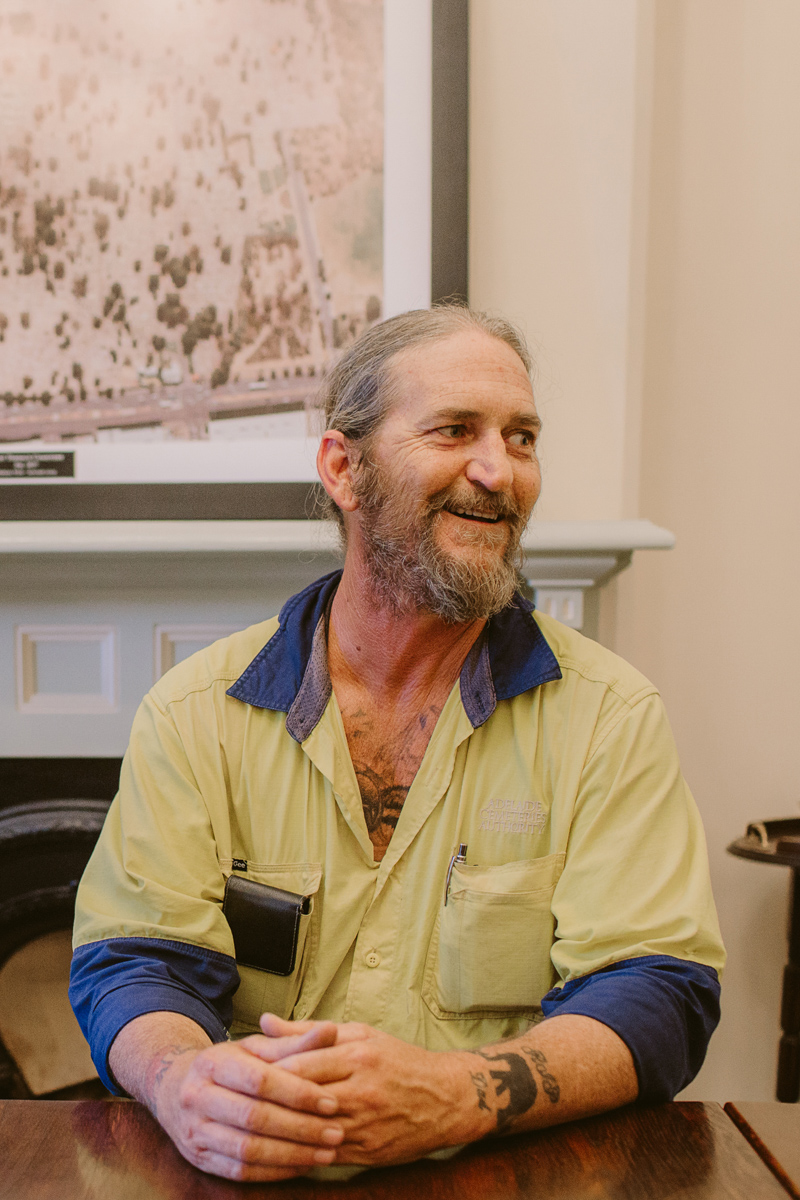
Prior to spending more than a decade as a grave digger for the Adelaide Cemeteries Authority, Alan was a landscape gardener. Days spent out in the elements using heavy machinery and doing even heavier labour don’t bother him at all.
“You don’t want to employ someone who has spent a lot of time inside because we’re outside whether it’s hot, cold, raining,” says Alan.
“We take breaks and things like that and get out of the heat and out of the rain, but if there’s a burial on or an ashes placement or something like that we have to go out and do it.”
But at the same time, over his years in the job during which he has risen to become a team leader at both West Terrace Cemetery and Cheltenham Cemetery, Alan has developed a philosophical way of dealing with grief and the bereaved.
Alan, after more than ten years working as a gravedigger, is a mine of intriguing trivia about cemeteries. Among his knowledge is the understanding that, in years gone by, every tiny gravestone detail – from the inclusion of certain flowers to the way a letter was carved out – had meaning. Volunteers at the Adelaide Cemeteries Authority are currently investigating just what meant what.
As gravediggers, he and his team have direct contact with those left behind more often than most would think. They conduct services as ashes are placed into the ground themselves, they’re on hand for mausoleum placements and are often asked by family to help find gravestones while they’re out working in the cemeteries.
“The best part about the job is feedback from families,” says Alan. “The feedback you get from some families keeps you going for six months. You just think about how you made that family or that person feel and that’s the most important thing for me.
“And that’s the way I look at it – this is the worst time of someone’s life so we’re there to make things as easy as possible for them.”
But for Alan, the labour and the personal interaction elements of his work aren’t totally divorced. The digging of a grave and maintenance of cemeteries are just more opportunities to make sure families and friends feel their loved one is being respected in death.
“Sometimes things like rose petals in a hole for an ashes placement can just make it so much easier for someone to get through it,” he says.
Working in the death industry daily might appear to have the potential to be depressing, but Alan and one of his newest team members – Anthony Weddell – say it can offer a dose of healthy perspective.
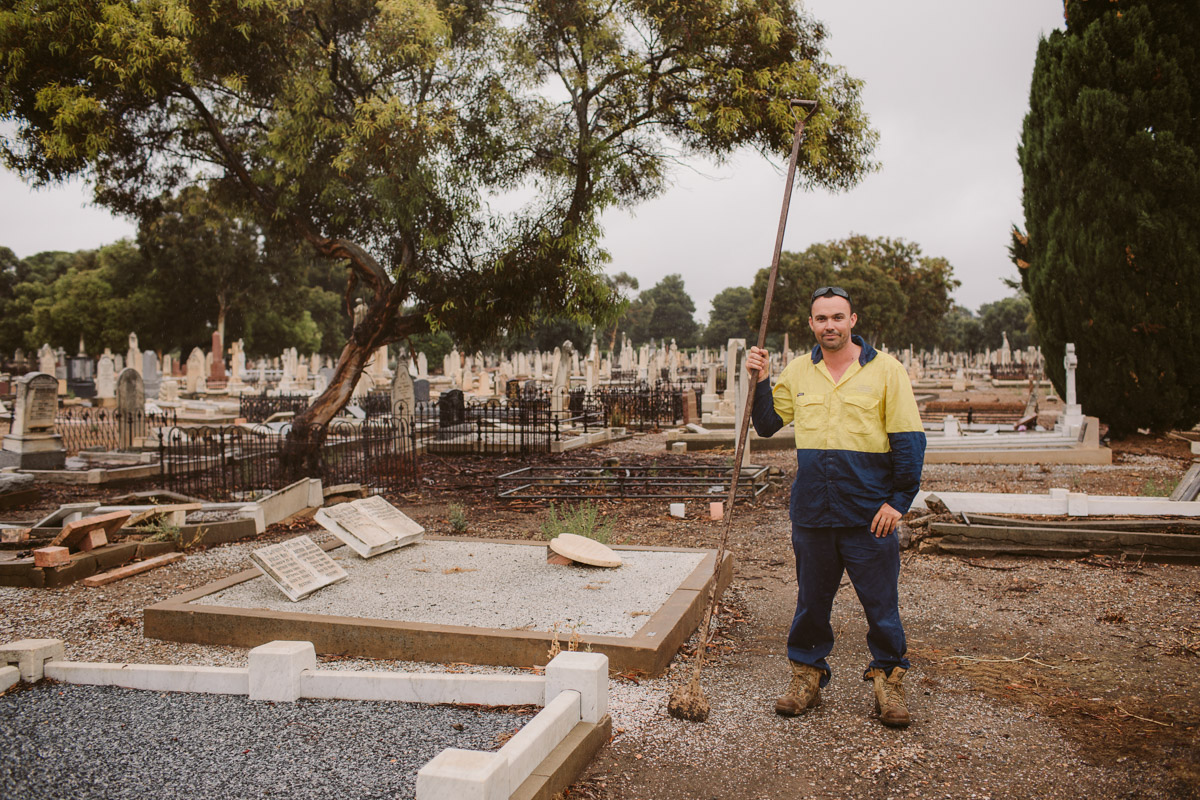
Anthony Weddell
“When you come around here on the lawnmower and you look at some of the ages on the really old headstones,” says Anthony, “you can see how young people were when they died. It makes you actually appreciate the time that you’ve got here.”
It’s also a job that keeps pace with the technological revolution. In 2017 graves, of course, aren’t dug with shovels – they’re dug with excavators and other heavy machinery complete with enclosed cabs and sometimes air conditioning.
And the progress extends into the chapels as well, with the process of grieving the dead swept up into the digital age along with everything else. Online memorials and webcasts of funerals are regular offerings now, and services come with an array of technical options.
“Our chapels at Enfield, when I first started, we had tape recorders and things like that,” says Alan, “and now we have projectors that project onto a glass window out the front so people who can’t fit in the chapel can watch the service from out there.”
It’s a difficult job still, and one that requires a heart for hard work and for soft words, but gravediggers are not antiquated at all – they’re modern workers providing what Alan rightly calls “an essential service”.



